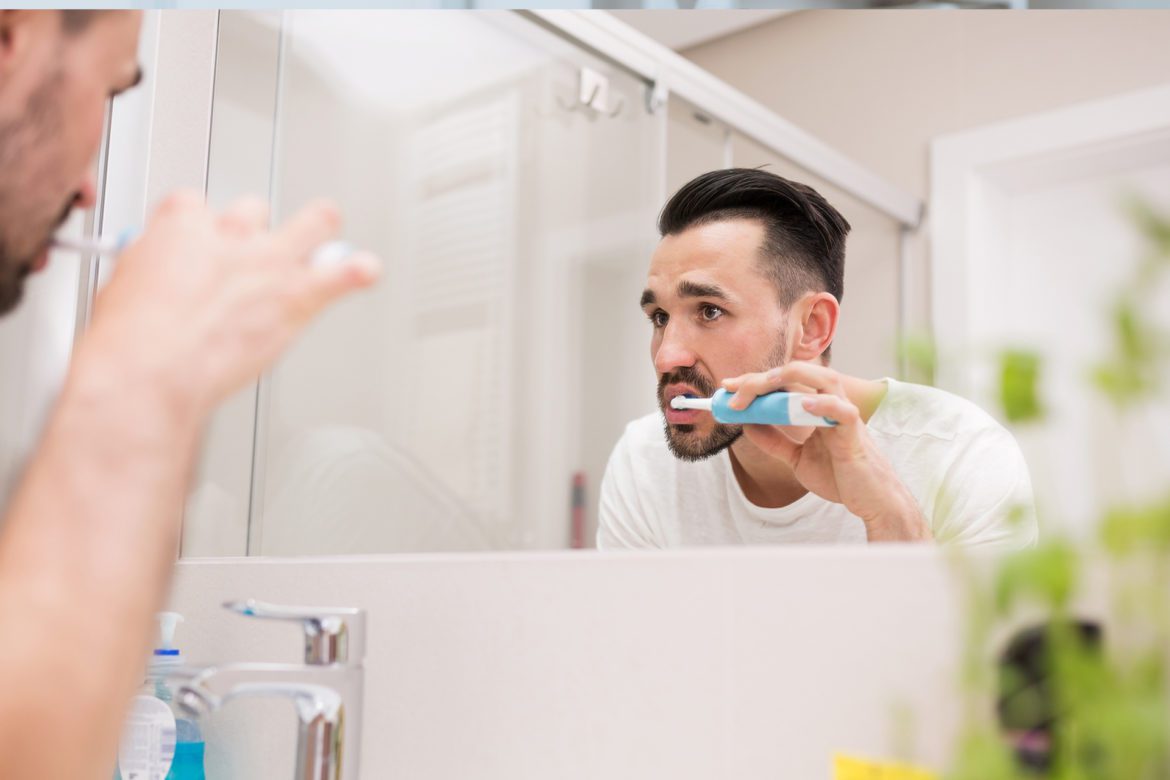The other day, I found myself listening to Pam Ayres reciting her poem, “Oh I wish I’d looked after me teeth”.
It’s a classic, and I was soon laughing out loud. If you fancy this particular trip down memory lane, here it is: www.youtube.com/watch?v=H6g1I37_r1E
By a strange coincidence, also on that day I heard a podcast linking poor teeth to the high incidence of Alzheimer’s. That wasn’t funny at all.
It’s a complicated issue, but it seemed pretty crucial stuff to me, so in case you don’t know about it, I’ll do my best to explain.
I think it would be true to say that when most of us give any thought at all to our teeth, we worry about two things:
The possibility of toothache How they look
Toothache is one of life’s most unpleasant miseries and to be avoided at all costs.
But appearance is important too. As we become older, our teeth tend to deteriorate. Some people lose one or two, or chip bits off them.
Also, many of us avoid smiling because we’re ashamed of how stained or uneven they have become – which is understandable, as unsightly teeth make us look older than we are.
However, there are other dangers lurking that are potentially even more serious.
As reported by the digital publication Open Access Government, a review of a number of research studies showed a link between loss of teeth, and cognitive impairment and Alzheimer’s.
Of course, it would be true to say that people with dementia of all types usually find it difficult to clean their teeth properly.
So it could be that inadequate dental hygiene is a result of early dementia rather than a cause of it. As I said, it’s complicated.
But more and more experts are warning that an unhealthy mouth – that is one with poor or missing teeth, decay, and gums in such a bad way that they bleed regularly – are contributing factors to the development of Alzheimer’s.
I feel we must take this seriously.
And it’s not just dementia we have to worry about. Medics and scientists have been saying for years now that the bad bacteria we develop when our teeth and gums are unhealthy can cause, or contribute to, a wide range of illnesses, including stroke, heart disease, diabetic complications, and pneumonia.
This is because these bad bacteria inevitably make their way from the mouth into other parts of the body and damage them.
So, this is a real concern. But what is worse is that it’s happening against the background of a diminishing number of NHS dentists.
We all know that dentists have been leaving the health service for years. But the drain is now a flood. In 2021, for example, we lost 2,000 of them. And of those clinicians still in the NHS, latest figures suggest that 47 per cent are planning to change careers or seek early retirement.
These are dire times which have led to lots of people feeling forced to take the private route. However, that is far from a cheap option and as a result, many folk are delaying routine dental and hygienist appointments, in order to save money.
When we do this, it’s common for us to promise ourselves that we’ll look after our teeth extra well and keep our mouths so healthy that we won’t need a dentist.
But the truth is that many of us are not as scrupulous with oral hygiene as we might be. At our age, a cursory, swift vague brushing late at night is not enough. We need to do it thoroughly twice a day and use floss and/or interdental brushes daily to get rid of food particles and stimulate and protect our gums.
Unfortunately, we tend to take our teeth and gums for granted until they cause us any difficulty, and we frequently cut short the attention we should be giving them because we’re tired, or have run out of floss, or don’t think we need to go through the whole caboodle every single night.
This is human nature.
It’s human nature too, to try to save money in challenging financial situations.
But from everything I have read this week, I must warn you that this could be extremely costly in the long run, and therefore a false economy.
Quite apart from anything else, bacteria and plaque can build up in those tricky-to-get-to places that we fail to reach. Only a hygienist or a dentist can deal with them – and rid us of the problems that might go on to cause our general and cognitive health to suffer.
Pam Ayres in her poem clearly thought her teeth were beyond saving.
Let’s make sure ours are not – particularly now we know how dangerous that could be.

